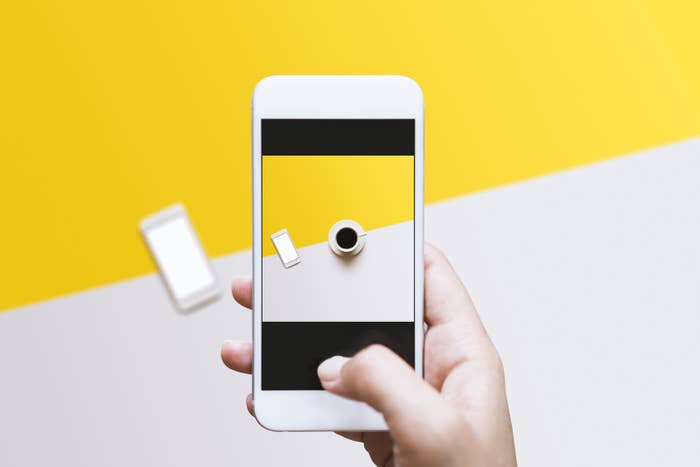
Scientists have come up with a computer program that can guess whether someone is depressed just by looking at their Instagram photos, correctly identifying people with depression 70% of the time.
The study involved 166 people who shared over 40,000 Instagram photos in total with the researchers, alongside their mental health histories. About half of the participants had been diagnosed with depression over the last three years.
The computer program, created by a pair of researchers in the US, looked at the colours in the participants' Instagram photos, the number of faces in the photos, and the likes and comments each photo got. They found that depressed people tended to post pictures that were bluer, darker, and greyer. And when they posted pictures with faces in, there tended to be fewer faces per photo.
But before you go off and look at your Instagram feed through this new lens, beware that the small sample size in this study means there's "no guarantee that this would translate to just the average Instagram user", Chris Danforth, codirector of the University of Vermont’s Computational Story Lab and author of the paper, told BuzzFeed News.
He also stressed that what they’ve created is not a diagnostic test, but just a proof-of-concept for a new way to help people – a tool that could give an "early warning" to someone showing signs of becoming depressed. The research is published in the journal EPJ Data Science.

The trends seen in the study tally with the literature on depression. “It seems to be the case that people who are experiencing depression see the world in a darker, bluer fashion quite literally, and they spend less time in social groups,” Danforth said.
Depressed participants in the study were less likely to use Instagram filters on their photos at all, but when they did use them they disproportionately favoured Inkwell, which makes photos black and white. Healthy participants in the study favoured Valencia, which increases exposure and warms the colours in the photo.
Danforth and his coauthor, Andrew Reece of Harvard University, also looked at whether the metadata on the photos, specifically the number of likes and comments, could help predict depression, but they found it didn't. “I initially expected that those would be stronger predictors than they were,” Danforth said. "That was kind of surprising to me."
The researchers trained the program by giving it the majority of the photos and telling it which ones had come from depressed people. They then let it figure out, using machine learning methods, if any of the attributes it was able to measure – colour, faces, likes, and comments – could help it identify people with depression. They then tested out the algorithm on the photos they'd set aside at the beginning, which it had never seen before.
Crucially, the computer program picked up on signs of depression before the participants' date of diagnosis, suggesting it could be useful in predicting depression, not just identifying those who have already been diagnosed.
"This is a promising study that may help to identify the early warning signs of mental distress," Dr Louise Theodosiou of the Royal College of Psychiatrists told BuzzFeed News. "I have worked with young people who recognise each other's distress through Instagram, and this can certainly be helpful. We should be wary, however, of ever using such tools for diagnosis purposes."
"With the appropriate healthcare pathways in place to accompany an algorithm such as the study suggests, communications channels like Instagram may prove valuable for identifying and treating mental illness," she added.
Chloe Grass-Orkin at Rethink Mental Illness told BuzzFeed News that being able to spot the signs early and access help quickly can make all the difference when it comes to mental health. "For many people, using social media is now second nature and forms a part of our daily lives, so being able to integrate mental health support within these platforms offers exciting possibilities," she said. "This is clearly a new frontier for research. Developments and improvements in the recognition of mental health problems, and helping people access appropriate care and support, are very much needed.
“However, it is still very early days, and care must be taken not to jump to conclusions or oversimplify and reduce diagnosis to someone’s social media footprint. If anyone is struggling with their mental health, it is important that they speak to someone, whether that’s a friend or their GP [general practitioner], in order to get the support sooner rather than later.”
Danforth said he was motivated to do the study because while mental health has been getting an increasing amount of attention, there haven't been a lot of people in the computational and social science worlds looking at it.
One limitation the researchers came up against in this study was people's reluctance to share their Instagram photos in the first place. Out of 509 people who started the survey, 43% abandoned it once they were asked to share their Instagram data, even after being given guarantees of privacy.
"There is a lot of promise to this sort of health analytics software if we can figure out how to protect people's privacy," said Danforth. "We can get people in front of a doctor sooner, and that's going to be good for their health."
